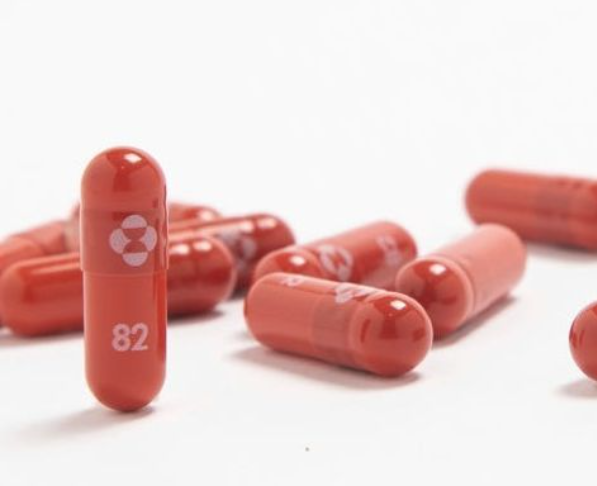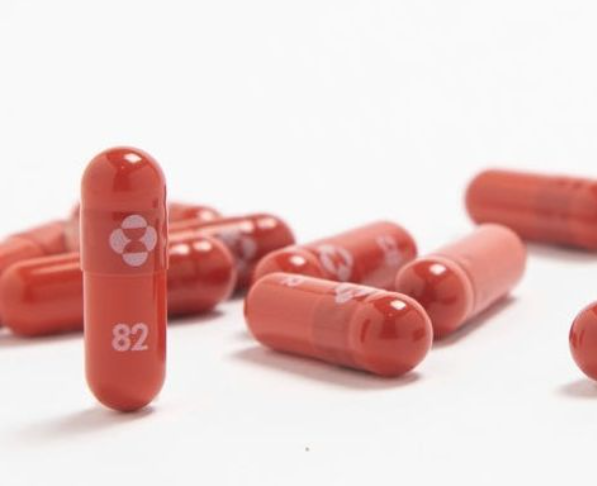The molnupiravir pill, developed by Merck and Ridgeback Biotherapeutics (Merck), is the newest innovation in the search for the most effective COVID-19 treatments. This experimental drug is an oral pill that is said to treat COVID-19 positive patients.
The New York Times describes how the drug works: “Molnupiravir tricks the coronavirus into using the drug to try to replicate the virus’s genetic material. Once that process is underway, the drug inserts errors into the genetic code.”
According to the New York Times, Merck already sold 1.7 million treatment courses to the US, despite not having been approved by the U.S Federal Drug Administration (FDA). Merck has applied to the FDA to receive authorization for emergency use and they’re still waiting on a response. They’re already looking to other countries to market the pill to and plan to offer different price points for different countries.
One reason as to why there’s so much focus on this new pill is because it means COVID-19 treatment is on its way to being more accessible than ever. If this new pill were to come to fruition, people won’t have to go to health centers and be jabbed with needles. Instead they can take a painless treatment plan from the comfort of their own home.
Wellcome Foundation Director Jeremy Farrar told Bloomberg, “While yet to be cleared by regulators, Merck’s molnupiravir has been hailed as a potential breakthrough, as it could be relatively cheap and easy to make, doesn’t require infusion and has shown it reduces the risk of hospitalization in a trial. Yet it may need to be combined with other drugs to head off resistance.”
With all that in mind, it’s important to mention that the molnupiravir pill shows a 50 percent lower efficacy, or the ability to produce the desired result, than the intravenous cocktail from companies like Regeneron or Eli Lilly. Because of this, it seems that once it’s released, the pill would only be available for those who have COVID-19 but aren’t in the hospital, those who are unvaccinated, or have chronic medical conditions.
Sonoma State student Julissa Ledesma believes, “…a pill that can help ‘cure’ mild symptoms is a huge improvement during the pandemic, [and it] will benefit people in the long run if it does come out with more studies on how effective it is.”
When asked about how this COVID-19 pill could impact Sonoma State students, Ledesma said, “There could be a possible decline in COVID-19 cases on campus, perhaps allowing more students to attend more in-person classes in the spring semester.”
Other companies like Pfizer are also developing pills to combat COVID-19, but they won’t be available until next year and have not even begun the lengthy process of getting approved by the FDA.





![[Both photos courtesy of sonoma.edu]
Ming-Ting Mike Lee stepped in as the new SSU president following Sakakis resignation in July 2022](https://sonomastatestar.com/wp-content/uploads/2024/04/CC4520AB-22A7-41B2-9F6F-2A2D5F76A28C-1200x1200.jpeg)



























